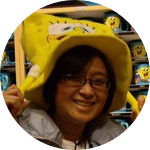About This Project
When I was young, I had developmental coordination disorder (DCD). I just didn’t know what it was. Children with DCD have trouble with motor coordination. It can be hard to play sports, do your homework, tie your shoes or handle a keyboard - skills essential to participation in everyday life. With my project, I hope to develop a standardized, effective way to better classify children with DCD so they can receive the best care, right away.Ask the Scientists
Join The DiscussionWhat is the context of this research?
DCD is a chronic condition, one that occurs in 5 to 6 percent of children. Children who have it may have problems with gross motor skills, sensory processing, fine motor skills and/or posture. Although these problems are treatable — especially if they’re caught early — DCD can be hard to diagnose, because we don’t know enough about it. And, of course, there are a large variety of symptoms.
My hypothesis is that children with DCD demonstrate different physical limitations and should be divided into subgroups. DCD would then become an “umbrella” diagnosis. If we were able to better define different subgroups, children would be easier to diagnose and treat. We hope the outcome would be better, more targeted treatments for their type of DCD.
What is the significance of this project?
Children with DCD have difficulty performing daily activities and schoolwork, with the result that they can develop psychological problems, including high levels of stress. Although the condition is a problem — a treatable problem — it is often overlooked by parents, teachers and medical professionals.
Appropriate and timely diagnosis is key. If we can identify these children at an early age and provide appropriate intervention, their prognosis is very promising. That’s why I want to develop a standardized process to assess children with different types of DCD.
What are the goals of the project?
The goal is to work with children and families
to develop a classification system— using clinical and lab measures — that will identify subgroups in children with DCD. The subgroups will be based on how DCD affects the child — by impairing gross motor skills, fine motor skills, etc.
In our test sessions, we will involve children in activities that happen in their daily life, such as jumping, throwing and catching a ball, and drawing pictures. We’ll measure how children move, how they do tasks with their hands, how they answer some questions, and how they play.
We would like to publish the results in journals and present at conferences. We expect this study will be the first step to better diagnose children with DCD and will contribute to intervention management of these children.
Budget
The $4,000 budget will be used as an incentive to attract 50 families to participate in the project and pay for basic expenses ($80/family). For each test session, we will provide a $25 gift card to the family and a $15 parking pass for University of Washington parking. Each child will participate in two test sessions.
Meet the Team
Team Bio
I attended college and received my physical therapy (PT) license in Taiwan. I have worked primarily with children with special needs. Today, I am a Ph.D. candidate in the Department of Rehabilitation Medicine at the UW School of Medicine.I became interested in pediatric rehabilitation during my PT training. That’s when I discovered that I met almost all the criteria of children with DCD (except that I was already 20 and no longer a child). I was attracted to the amazing neuromotor development mechanisms and motor learning processes that occur in children, and I feel so lucky that I have the chance to do research related to children with DCD!
Sarah Westcott McCoy
Physical Therapist
Professor, Department of Rehabilitation Medicine, University of Washington
I have been involved in pediatric physical therapy education and research focusing on balance and motor dysfunction for 35 years. I received my PhD in Behavioral Neurosciences at the University of Washington in 1993. My interest in children with DCD stems from the fact that these children do not currently receive adequate examination and treatment in US. They have distinct motor problems, which affect their ability to participate with their peers leading to depression and isolation. However, with treatment they can participant and become happy citizens. Research needs to be done on these children.
Additional Information
Banner image courtesy of Judy Baxter on Flickr.com (orignal: https://www.flickr.com/photos/judybaxter/5484879) under Creative Commons license.Project Backers
- 82Backers
- 106%Funded
- $4,275Total Donations
- $52.13Average Donation

